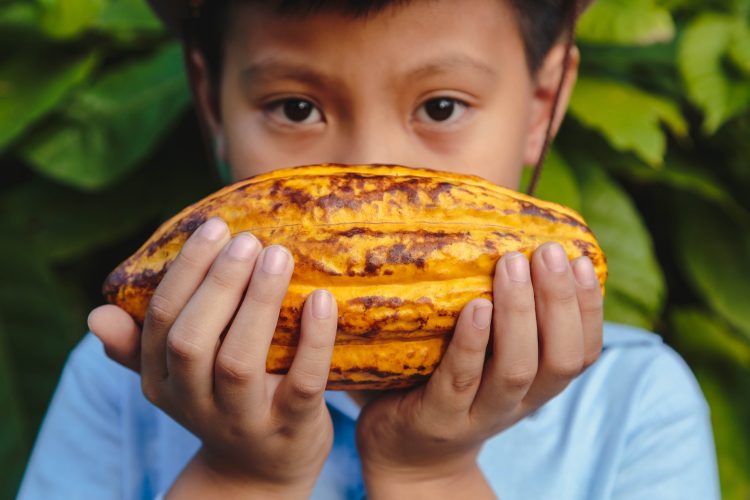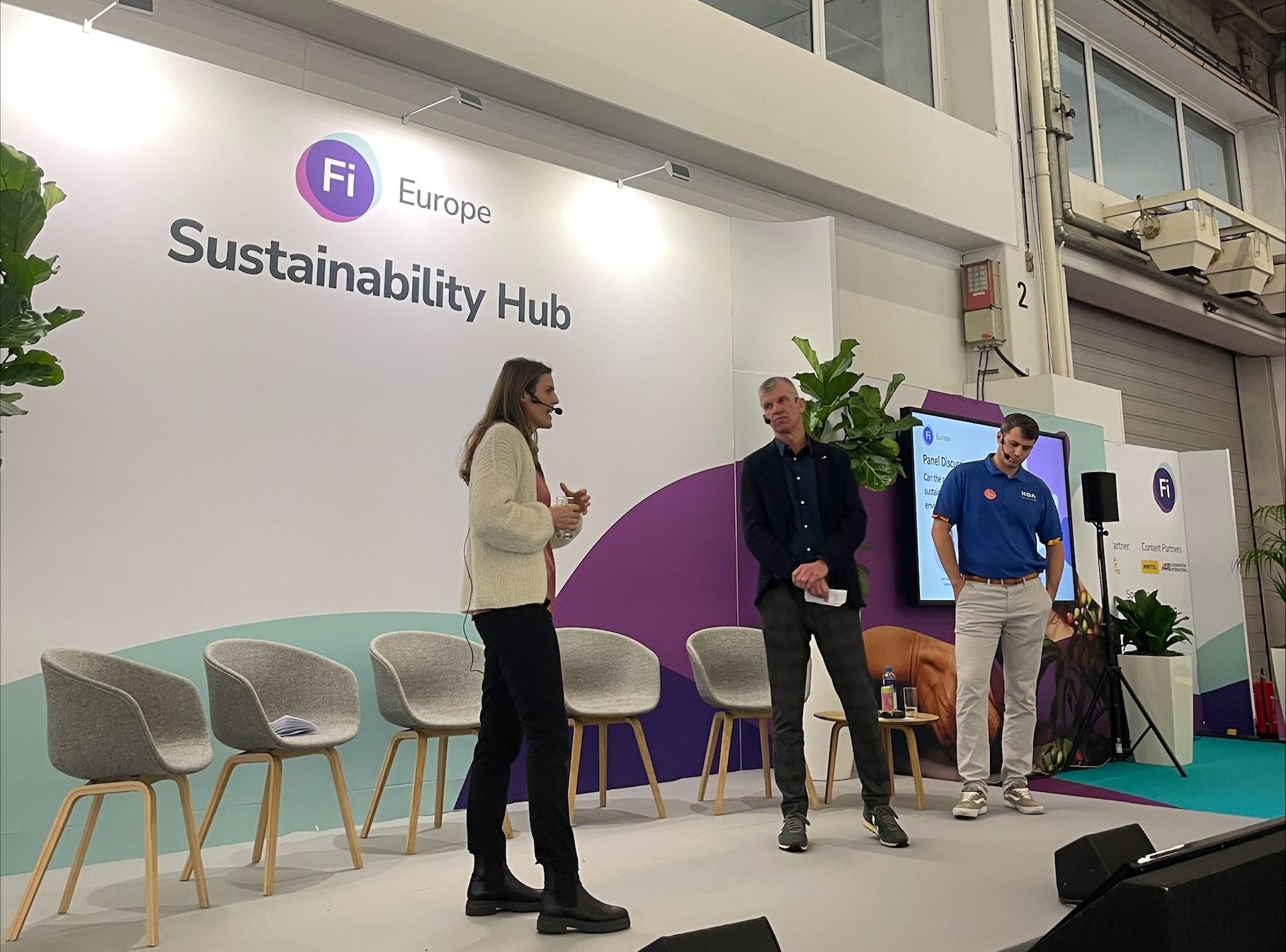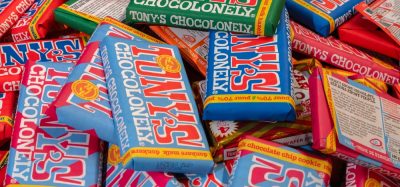A new chapter for cocoa: Nestlé’s Income Accelerator Programme
- Like
- Digg
- Del
- Tumblr
- VKontakte
- Buffer
- Love This
- Odnoklassniki
- Meneame
- Blogger
- Amazon
- Yahoo Mail
- Gmail
- AOL
- Newsvine
- HackerNews
- Evernote
- MySpace
- Mail.ru
- Viadeo
- Line
- Comments
- Yummly
- SMS
- Viber
- Telegram
- Subscribe
- Skype
- Facebook Messenger
- Kakao
- LiveJournal
- Yammer
- Edgar
- Fintel
- Mix
- Instapaper
- Copy Link
Posted: 30 November 2023 | Grace Galler | No comments yet
Exploring cocoa supply chain sustainability, Simone Kleinau from Nestlé Deutschland took to the stage at Food Ingredients Europe to share how the company’s Income Accelerator Programme supports cocoa farmers and their families.


At Food Ingredients Europe, many industry professionals gathered to deliberate the potential of achieving genuine sustainability within the cocoa supply chain.
During an interactive session, a significant portion of the audience expressed skepticism regarding the feasibility of this ambition. In an effort to shift this perception, the on-stage discussion emphasised how companies can collaborate with their supply chain and advocating for equitable practices that bolster farmer support while sustaining the thriving chocolate sector.
The session allowed Simone Kleinau, Public Affairs Manager at Nestlé Deutschland, to put a spotlight on the work Nestlé has been carrying out regarding its Income Accelerator Programme to combat pressures experienced by its cocoa farmers through education, training and household funding.
Reaching the living income
Largely farmed in countries such as Côte d’Ivoire and Ghana, cocoa is often produced on a large scale by farmers who then sell their produce to companies across the world. On stage, Kleinau shared with the audience that when it comes to cocoa farming, the world is “reliant on the food business and cultivating ground” but emphasised that in the twenty-first century there are still “issues such as poverty, child labour and deforestation”, with poverty stemming from the way that farmers are “not earning a living benchmark”.
Needed for a “decent standard of living”, Kleinau summarised the living benchmark as something that is necessary for cocoa farmers in order to produce ingredients and provide for their families, but in reality, Kleinau claimed that calculations “say that it is more than half lower than actual income”, an issue she stressed can lead to farmers “[sending] their children off to the field”, inhibiting them from gaining an education.


“Can the cocoa supply chain ever become truly sustainable?” was an on-stage discussion that took place at Food Ingredients Europe 2023 hosted in Frankfurt
Kleinau emphasised the importance of cocoa farmers receiving a wage that meets the living benchmark in order to have a “decent standard of living”, something that includes having a roof over their head and access to education and clean water. Putting words into action, Kleinau explained to the attendees how Nestlé’s Income Accelerator Programme includes various initiatives that are designed to directly support its cocoa supply chain, working with people on the ground and giving back for their agricultural efforts.
The Income Accelerator Programme
Nestle’s Income Accelerator Programme is a targeted initiative designed to bolster the livelihoods of cocoa farmers by amplifying their income potential within the supply chain. This strategic programme focuses on enhancing the efficiency of cocoa production, empowering farmers with improved techniques, and enabling access to markets that offer fairer prices for their produce.
On stage, Kleinau shared that Nestlé is committed to improving farmers’ understanding of “good agricultural practices”. Along with financial support, Kleinau shared that the cocoa farmers Nestlé works with receive training and support to develop their agricultural practices, including as pruning trees, something that can boost productivity.
But it doesn’t just stop with farmer education, Nestlé has pledged its support to the women and children within cocoa farming households – supporting them as a whole household to bolster change.
“We now pay almost €500 directly to the farmers and their households. So half [goes] to the farm and half to the household which is a really important effect, including women’s inclusion in this budget process [and looking] at them as a whole house,” explained Kleinau.
Sharing why the duplication of income is an important step in nurturing its cocoa supply chain, Kleinau shared: “Women included have specialised training and we bring them into the village to save it along with [cocoa] creation. We really build up knowledge and empower them so that they can have an income on their own.”
Overall, Income Accelerator Programme is dedicated to fostering a sustainable cocoa ecosystem, ensuring that farmers benefit equitably from their hard work while promoting resilience and prosperity within the cocoa-growing communities. As a way of building more secure livelihoods, Kleinau shared that Nestlé also supports the families of its farmers through enrolling all children aged between 6 and 16 in school.
“Companies should always have a role”
It was clear for those in attendance of this session at Food Ingredients Europe that Nestlé is commitment to enhancing the sustainability of the cocoa supply chain.
As pointed out by moderator Gert Van Der Bijl, Senior EU Policy Advisor at Solidaridad, “companies should always have a role” in ensuring that their supply chain is sustainable, but, more than that, should be supporting the farmers it works with beyond simply purchasing their ingredients.
Utilising the Income Accelerator Programme, Nestlé has embarked on a purposeful initiative directed at enhancing the well-being of cocoa farmers and their families, with efforts being geared towards enabling these farmers to reach the living benchmark, mitigating challenges such as poverty, child labour, and deforestation.
Beyond financial assistance, it appears that Nestlé is addressing societal aspects by supporting education for children and promoting the involvement of women in farming.
To conclude the session Van Der Bijl asked for another show of hands from the audience and asked again: “Do you think the cocoa supply chain become truly sustainable?” With Nestlé’s initiatives in mind, the some member of the audience shared that their perspective had shifted, suggesting a growing belief in the possibility of achieving a truly sustainable cocoa supply chain, with the support of programmes such as Nestlé’s designed to nurture and preserve the delicate balance between economic viability and environmental stewardship within the cocoa industry.
Related topics
Environment, Quality analysis & quality control (QA/QC), Recruitment & workforce, Regulation & Legislation, Research & development, Supply chain, Sustainability, Trade & Economy, World Food









